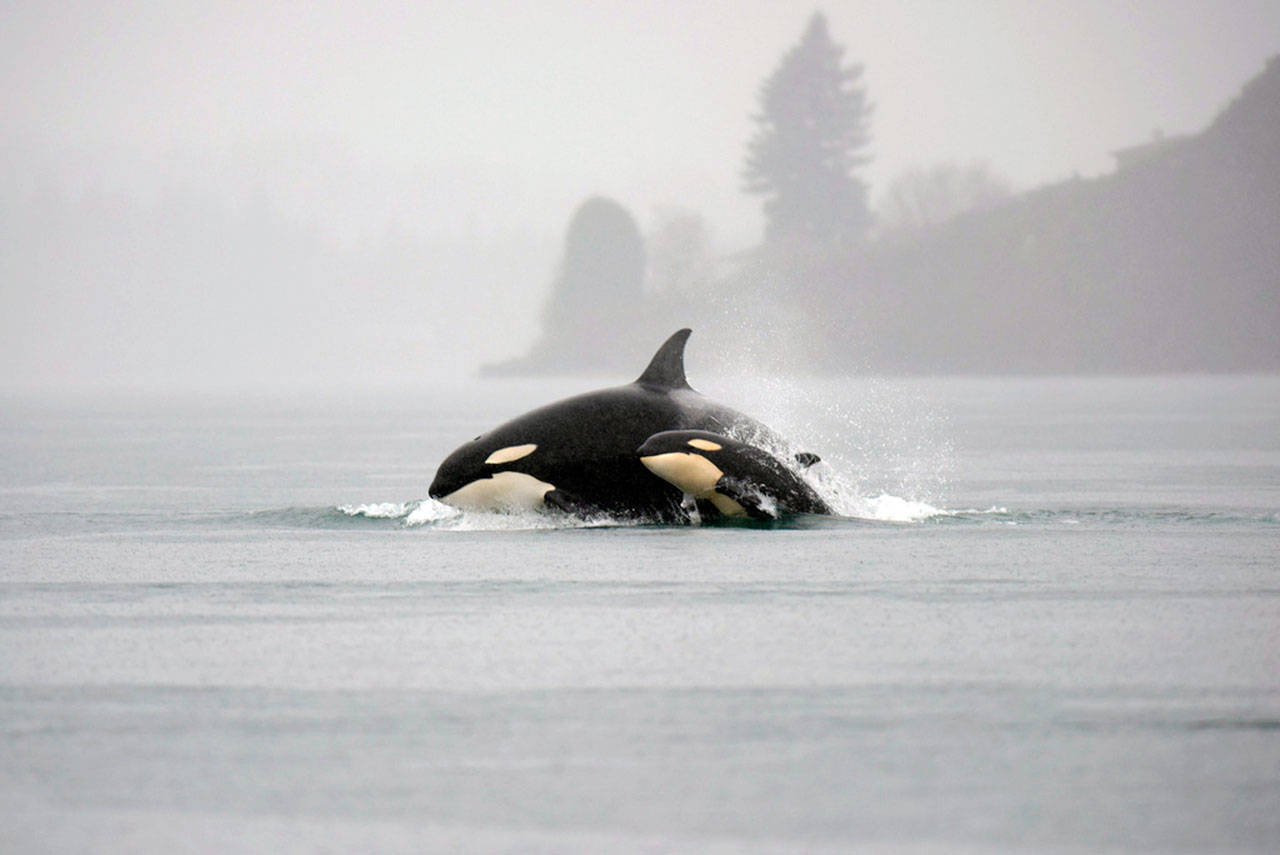By Alex Visser
WNPA Olympia News Bureau
OLYMPIA — A state Senate bill would require the state to add greater protections for orcas, which are on the U.S. endangered species list.
Senate Bill 6268, which was heard by a Senate committee Tuesday afternoon, comes from Sen. Kevin Ranker, D-Orcas Island, as part of his Salish Sea Protection package, which also includes bills that address oil spill prevention and salmon farms.
Ranker calls the bill the Orca Protection Act and said the impressive creatures have been an important part of his political career since the very beginning.
In 2009, before being sworn in for the first time as a senator, Ranker met with scientists and policy thinkers to come up with a plan to save the whales. The senator said the orca population in Puget Sound was down to 83, the lowest it had ever been.
Ranker said the scientists told him the population might not be sustainable and could die out, but the legislator from San Juan County was resolute in his response:
“Not on my watch; let’s do something about this.”
More than eight years later, the population has fallen to 76, according to Penny Becker from the state Department of Fish & Wildlife. Becker said the whales that are still around are in poor health and are struggling to raise their young.
Three factors
Ranker identified three factors as having the greatest impact on orca populations: toxins, lack of food and noise pollution. The senator has sponsored two other bills that target the first, while SB 6268 is designed to address the latter two.
Noise creates problems for both orcas and their salmon food source, Ranker said. Boats traveling at high speeds in the sound can scare orcas, but can also scare off the fish that make up their subsistence. Ranker said this problem has been identified by federal and independent researchers.
According to Ranker, noise is also an issue because it interferes with the whales’ sonar, rendering them unable to find food via echolocation.
“It doesn’t matter how many salmon are in the sea if the orcas can’t hear to find them,” said Donna Sandstrom, founder of the Whale Trail, at SB 6268’s public hearing Tuesday afternoon. The Whale Trail is a series of sites in Washington — including several on the North Olympic Peninsula — where the public can view orcas and other marine mammals.
SB 6268 addresses noise issues by requiring that boats stay at least 400 yards away from orcas and travel no faster than 7 knots, about 8 mph, when in their vicinity.
At the bill’s public hearing more than a dozen people signed in to support the bill, with none speaking out in opposition.
SB 6268 also would obligate Fish & Wildlife to send out a dedicated whale patrol boat 100 days over a 22-week period each year, which Ranker said would go a long way toward ensuring boaters do not break the law.
The patrols would require some extra funding, which Ranker said was well worth the result.
“When you see blue lights on the water, all of a sudden every boat operator is following the law,” he said. “There are some issues that we can take on right now, and this is clearly one of them.”
________
This story is part of a series of news reports from the Washington State Legislature provided through a reporting internship sponsored by the Washington Newspaper Publishers Association Foundation.

